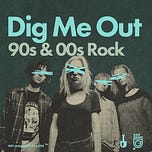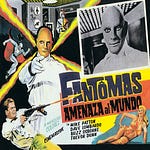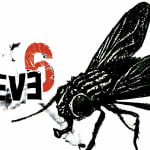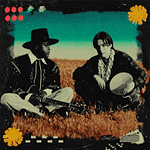It’s December 1993, and alternative rock is evolving in fascinating ways. Nirvana’s In Utero is still making waves, reasserting the band’s raw edge after the slick production of Nevermind. At the same time, The Breeders’ Last Splash is adding an offbeat, pop-punk flavor to radio playlists, while Liz Phair’s Exile in Guyville is redefining indie rock’s emotional and lyrical boundaries. Across the pond, Blur and Suede are laying the foundation for Britpop, while in the U.S., lesser-known bands like Shudder to Think, Unwound, and Girls Against Boys are pushing the boundaries of post-hardcore. It’s against this backdrop that Minneapolis trio Arcwelder released their third album, Pull.
The timing couldn’t have been more fitting. While grunge dominated the airwaves, Arcwelder’s music spoke to those who craved something grittier and more inventive—a sound rooted in the DIY ethos of the underground scene rather than the polished sheen of corporate rock.
Minneapolis Roots: The Blueprint for Pull
Minneapolis had already cemented its status as one of America’s great music cities by the time Arcwelder formed in 1987. Home to legends like Hüsker Dü, The Replacements, and Prince, the city was known for producing artists who combined raw emotion with a fierce commitment to individuality. Arcwelder fit this mold perfectly, their music blending post-hardcore intensity with melodic sensibility.
Initially named Tilt-A-Whirl, the band changed their name after a legal dispute with the carnival ride company. Their new moniker reflected their industrial, blue-collar ethos, fitting for a trio whose music balanced grit and artistry. By 1993, Arcwelder had found a home on the influential Touch and Go label, known for championing boundary-pushing acts like The Jesus Lizard, Slint, and Big Black.
The Sound of Pull: Dynamic, Raw, and Inventive
Recorded at the legendary Pachyderm Studio with producer Brian Paulson, Pull is a masterclass in post-hardcore dynamics. From the opening chords of “Truth,” the album bursts with energy, propelled by Scott Macdonald’s thundering drums and Rob Graber’s gritty, propulsive bass lines. The interplay between Rob and his brother Bill Graber on guitar creates a sound that’s at once angular and melodic, recalling the tension of bands like Jawbox or Fugazi.
Songs like “Cranberry Sauce” highlight the band’s willingness to experiment, weaving intricate instrumental passages into a cohesive narrative. Meanwhile, tracks such as “It’s a Wonderful Lie” and “Remember to Forget” showcase Arcwelder’s knack for pairing unconventional structures with ear-catching melodies. The vocal harmonies, often shared between all three members, add an additional layer of texture, drawing comparisons to Hüsker Dü while remaining distinctly Arcwelder’s own.
What makes Pull remarkable is its refusal to settle into one mode. The album shifts seamlessly between the dissonant riffage of tracks like “Truth” and the more introspective, almost pop-infused moments of “Forget to Remember to Forget.” This dynamic range keeps the listener engaged, revealing new depths with each play-through.
A Snapshot of Early 90s Underground Rock
In many ways, Pull captures the essence of a particular moment in alternative rock. It’s the sound of a band pushing against the constraints of a three-piece format, crafting songs that feel expansive yet grounded. The Minneapolis roots of the album are undeniable, with echoes of local heroes Hüsker Dü and Soul Asylum in the music’s emotional urgency and melodic ingenuity.
Yet, Arcwelder also stood apart from their peers. Their commitment to collaboration—each member contributing vocals and songwriting—gave their music a rare sense of balance and diversity. Tracks like “And Then Again” showcase this interplay, with jagged guitar lines and propulsive rhythms creating a sound that’s as cerebral as it is visceral.
In the 30 years since its release, Pull has remained an underappreciated gem in the 90s alternative rock canon. It didn’t break into the mainstream or produce a chart-topping single, but its influence can be felt in the DIY spirit of countless indie bands that followed.
Listening to Pull today is a reminder of what made the 90s such an exciting time for music: the constant tension between accessibility and experimentation, the balance of melody and noise, and the unyielding determination of bands like Arcwelder to create on their own terms. For anyone looking to rediscover the raw power of 90s alternative, Pull is a perfect place to start.
Songs in this Episode
Intro - Truth
14:04 - Lahabim
20:08 - Cranberry Sauce
23:33 - Remember to Forget
34:59 - What Did You Call It That For
Outro - It's A Wonderful Lie
Make Your Voice Heard!
In our quest to explore the depths of 90s Rock, we rely on you, our listeners. Your suggestions drive our show – be it an underrated classic or a forgotten gem. By joining our DMO Union on Patreon, you help us stay independent and ad-free and gain the power to vote on and choose the albums we dive into each year. Together, let's unearth the treasures of 90s Rock, one listener-powered episode at a time.
Suggest an Album → | Support the Mission →















